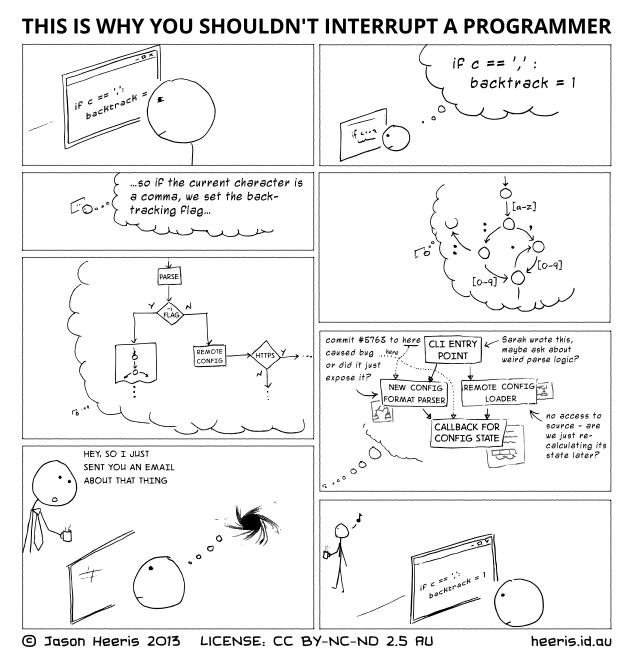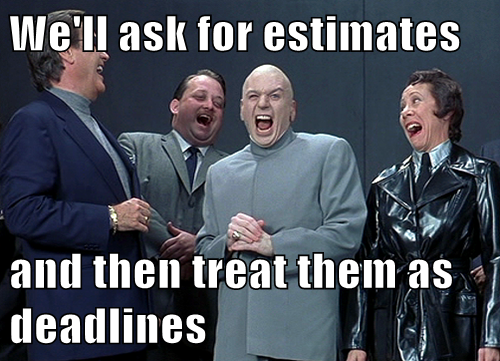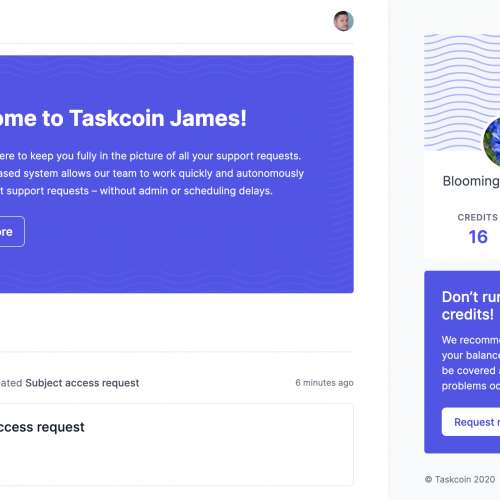Managers of tech teams have a big job. They not only have to manage stakeholder expectations but communicate them clearly to developers – regularly translating back and forth on technical language – to ensure projects and products are delivered to a high standard and on time.
The stress of being held accountable for a tech project can have the tendency to rub off onto tech teams, affecting how well their skills and productivity is managed, but it doesn’t have to be this way.
Here are five tips from our team of developers that give an idea of some of the ways that they can be managed through the process that maximises both happiness and productivity.
Keep meetings lean and interruptions to a minimum
Developers, like any artist and creative, need long stretches of time to get their heads into what can sometimes be highly-complex problem solving – work that needs intense concentration.
Fifteen-minute standups every morning are both efficient and sufficient
Lots of meetings, particularly if they are interspersed throughout the day, can impede progress and prevent devs from getting into a flow.
Fifteen-minute standups every morning are both efficient and sufficient. Keep it straightforward, go through what you’ve done and what you’re going to do.
If you find an issue or bug or have a question, unless it’s time-critical and blocking, make a note (or write a ticket) and discuss it at the end of that particular stretch of work.
If you’re using an Agile project management style, have faith that your sprints will allow teams to check in over the course of a project (e.g. every 2 weeks) where progress can be reviewed in more detail.
Take estimates with a pinch of salt
For particular stretches of a tech project or a piece of work, time estimates play an important role in planning and structuring work and budgets but, if they’re off, they can cause extra unnecessary pressure on tech teams.
Keeping unnecessary time pressure and stress off your team is all about balancing different perspectives.
Never take developer estimates as gospel and then use it against them
Your tech team will really appreciate being consulted on how long they think they might need to complete a project. How long you think they need and how long they actually need won’t always match up so giving them a say will keep things on an even keel.
That said, never take developer estimates as gospel and then use it against them. Projects can be complex and multifaceted and estimates need to reflect a multitude of different factors, some of which will be out of yours and your dev team’s control.
Take ownership of the bigger picture
When developers are working on tiny details of a project, it can be really helpful for managers to take care of the holistic picture of a project’s requirements.
Make sure things are well documented. You as a manager should keep abreast of the bigger picture, allowing them to focus on detail.
Some developers thrive off of structured to-dos based on requirements. They give them the informed space to get moving, knowing that what they’re doing is the right thing. Others prefer breaking things down for themselves as a way to work things out.
Wishy-washy instructions can cause stress and potential misunderstandings from developers on what they should be building.
Learning is just as important as doing

It’s incredibly important in an industry as fast-moving as technology and software development to allow developers a good chunk of time between projects to brush up on their skills, learn a new coding language or work on a personal project.
For our developers, this is essential for helping them to feel sharp and able to adapt to new and ever-challenging projects, but it also keeps things interesting, increases general motivation and helps to avoid burnout.
It will pay dividends when, in your next project, a junior developer will be able to step up to working on some design and UX that they couldn’t manage before.
Of course, different developers have skills in different areas. Working with people’s best skillset is a sure-fire way to maintain a harmonious and happy team.
Keep your tools simple
Productivity and management tools can be really great when used sparingly. Although it can be tempting to add in more for new processes or try the latest new software in the hope that it’ll help things run more smoothly, it can actually backfire and add unnecessary work and admin.
We like to use Basecamp for the majority of our project-level management, e.g. to-do’s, storing documents, communication with stakeholders or clients, separating lines of communications (e.g. external versus inter-team comms), daily updates etc.
We also use Google Drive for writing documents (this links up with Basecamp well) and Github for issue tracking, pull requests and features.
A lot of our dev team use GIFs and screenshots to share what they’ve created or built. It’s a great way for tech-led team members to communicate their achievements and overall progress with non-technical staff and stakeholders without needing any fancy kit.
Take away
These are just a few of the ways our project managers work with our developers to allow them to maintain good levels of productivity and to keep them (and our clients) happy.
Of course, not all tech teams and developers are the same. What do you think of our developer’s advice? Do you have any more tips to add? Tell us on Twitter @Simpleweb.
If you’d like to discuss your startup or project, get in touch with Simpleweb today.






